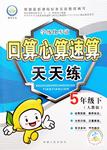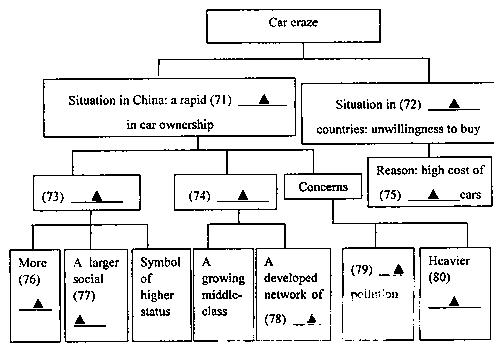题目内容
_______ pollution is the key to _______ the country a comfortable and clean place to live in.
- A.To control; keep
- B.Controlling; keep
- C.To control; keeping
- D.Control; keeping
C
第一个空是不定式作主语,第二个空是动名词作介词宾语。
第一个空是不定式作主语,第二个空是动名词作介词宾语。

练习册系列答案
 学练快车道口算心算速算天天练系列答案
学练快车道口算心算速算天天练系列答案
相关题目
